Divine Liturgy in the Monastery of Saint Anthony the Great in Novo Selo ( 22.04.2009 )
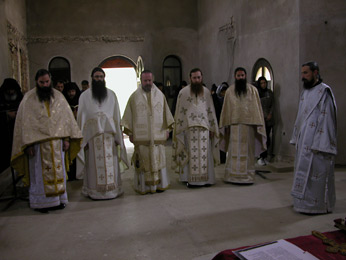
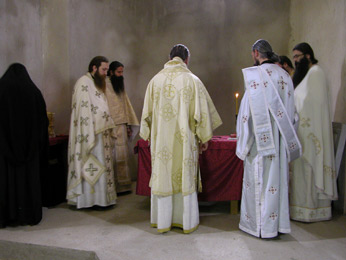
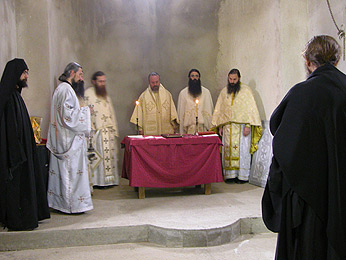
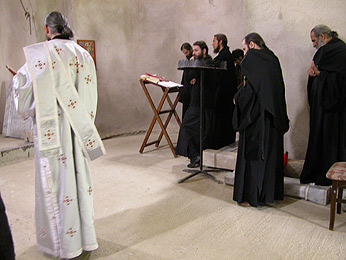
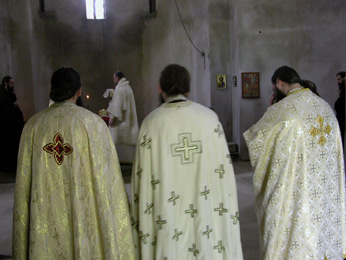
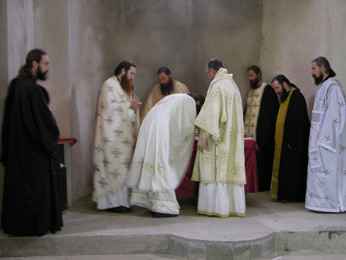
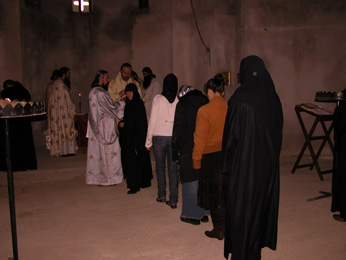
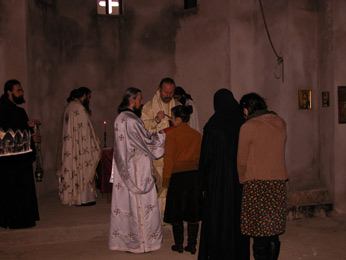
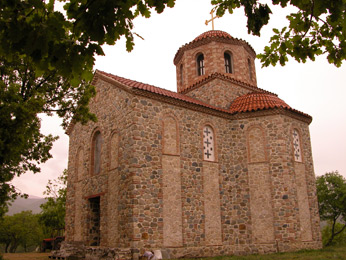
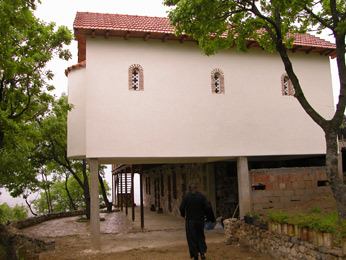
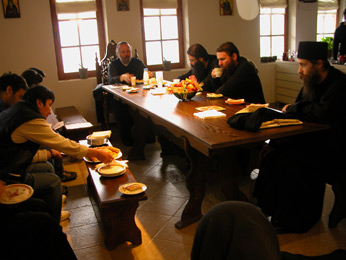
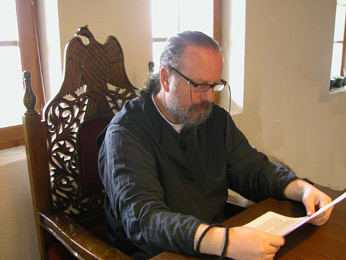
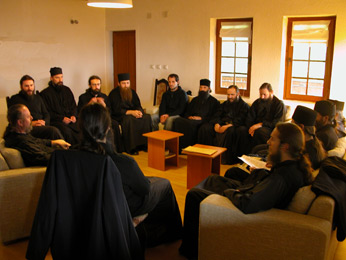
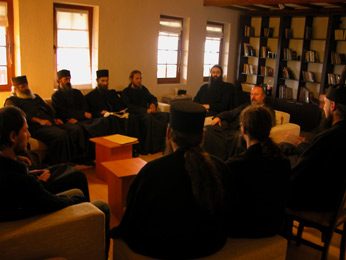
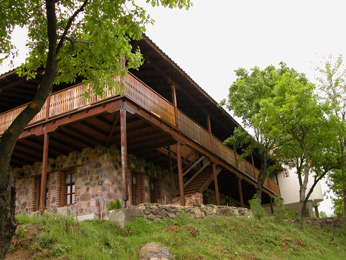
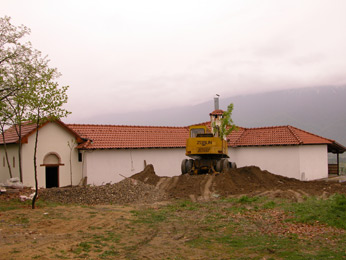
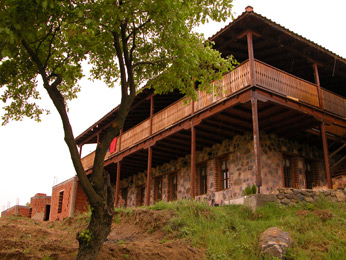
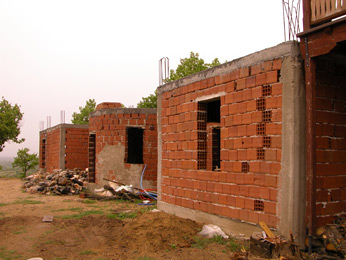
Exile (Estranging)
Great and glorious is the struggle for estranging (living as an exile). Our Most Holy Sovereign Lady the Theotokos and Ever-Virgin Mary lived as an exile. Not only did She stay alone in the Holy of holies of Solomon’s
We see the struggle for estranging perfectly in the martyrs and the fools for Christ in their absolute denial of the world, yet the subject of today’s gathering is the content of this struggle when it comes to monastics. Exile, as we can observe from the previously mentioned examples, does not comprise only its physical part but also the spiritual one. It is clear to us that just as our Lord Jesus Christ was lain bodily in a grave, so have we also closed our body in the monastery. Moreover, it is not only in the monastery, but we likewise keep it as much as we want to closed in our monastery cell. Yet also, just as our Savior descended to the hades with His soul, so should we too keep our mind in the hades of humility and not despair in hope and in prayer. This is the full meaning of what the holy apostle Paul says, I have been crucified to the world, and the world to me (cf. Gal. 6:14).
What does it mean to keep our mind in the hades of humility? You know what the hades of humility is, since I have talked to you many times. It is ‘the lowest place’, it is ‘a servant to all’, it is ‘absolute obedience’. It is when we voluntarily give up all our rights. It is conscious decreasing of chances for a higher position, or rank, or honor, or power, or glory. It is voluntary dying to the world and to all that happens in it. And all this is in order to liberate the mind from the slavery to the passion of pride and high opinion of oneself, that abomination of desolation standing in the holy place – in our heart.
And what does it mean that we should not despair in prayer and in hope? On the one hand, it means that just as the Son of God not in a single moment of the Trinitarian Economy has been separated from the Father and the Spirit, so should we also not abandon the struggle for continuous prayerful stillness. On the other hand, it means that just as Christ descended in the hades and saved the souls of the righteous that had been captured there, who had expected Him and who had lived and died with the hope of His coming, He will likewise certainly descend to the hades of humility in which we keep our mind according to His commandment and for the sake of His love, and will raise it. He will reveal to us the place of the heart, the place where the grace of God attracts and unites the energy of the mind with its essence.
The Lord is living, my children, and so shall be we. The gift of the mind-and-heart prayer is also living. I encountered this gift on the
Most of us today do not struggle in a foreign land and amid foreign people, yet since the struggle for estrangement as we have seen is not first of all ‘place’ but ‘manner’, therefore with some more effort it is possible for us as well. First of all, you know that the monastery typikon should be in line with the struggle for a life of an exile. And remember well, children, it is not possible to be granted the gift of the mind-and-heart prayer without the struggle for perfect estrangement and without us suffering adequate hardship. Therefore, aspire towards all the more perfect estrangement, and the involuntary hardships will add to what lacks to reach the perfect. And do not abandon this struggle all until you receive God’s gift of the mind-and-heart prayer. Then we will face the struggle for estrangement adequate to the second level of spiritual growth – illumination.
I feel the need to warn you once more because of the fact that the road is narrow and there are few who walk along it: since we have already come with the intention to deny the world, both outside and inside ourselves, let us be cautious lest we bring it in again somehow in the monastery and in our life. Let us be cautious lest we hear the voice of Him Who says, “No one, having put his hand to the plow, and looking back, is fit for the Kingdom of God” (Luke 9:62).
The attainment of the
May the Lord grant it…
Metropolitan Nahum of Strumica